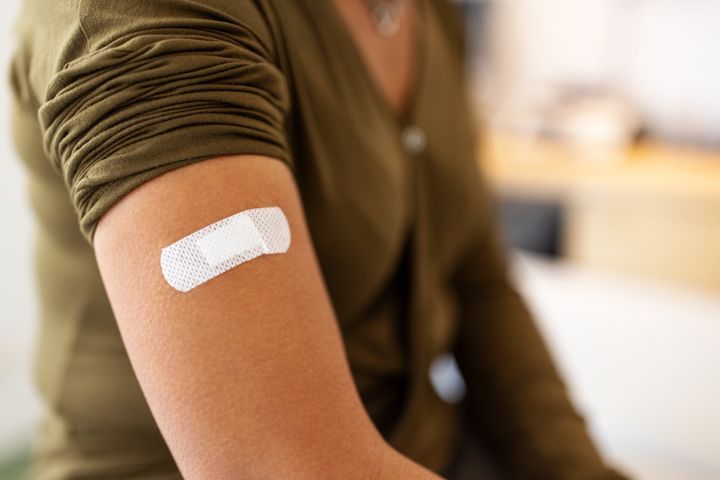5 Things Doctors Always Do After They Have The Flu
Body aches, fever, chills and exhaustion are the unpleasant hallmarks of influenza, the common virus that infects millions of people in the United States each season.
Just like other seasonal viruses like norovirus and RSV, levels of the flu are high or very high in many parts of the country during this time of year. It’s unfortunately likely that you or a loved one will come face-to-face with influenza this season.
Advertisement
“We are right at the time of the year in which there’s a rapid rise in cases, certainly at the local level and the national level,” said Dr. Dawn Nolt, a pediatric infectious disease physician at Oregon Health and Science University.
Nolt added that cases of flu haven’t hit their peak yet, making it important to do what you can to stay healthy (like getting your flu shot and washing your hands thoroughly).
Advertisement
If you are one of the millions of people who come down with the flu this season, there are precautions you should take at the tail end of your infection to keep your loved ones healthy and yourself safe from other viruses. Below, doctors share what they personally do after they have the flu to protect themselves and others:
1. They make sure they’re truly better before going back to their normal lives.
As a physician, Nolt’s biggest fear is making someone else sick.
“We try to only return to work once we feel better [and] the fever is gone for 24 hours without taking any fever-reducing medications,” Nolt said.
According to the Centers for Disease Control, you should stay away from other people until your symptoms are improving and you are fever-free without assistance for at least a 24-hour period.
2. If they still have symptoms and have to interact with other people, they wear a mask.
If staying home from work is not a possibility or you have to care for people in your household, you should wear a mask if you still have symptoms. This is particularly true if you have a cough and fever, Nolt added.
Advertisement
The flu spreads through respiratory droplets, and a mask can keep those droplets from spreading to those around you at work or at home.
Even after the CDC’s 24-hour rule, the virus can still spread, so it’s recommended that you take these additional precautions for an additional five days. You can also practice physical distancing to keep those around you safe.
3. They take precautions to stay protected against other viruses.
Just because you’ve moved on from the flu doesn’t mean you’re fully protected from getting sick again.
Advertisement
“After you recover from flu, there are a lot of other respiratory germs out there, so really wash your hands meticulously,” Nolt said.
Norovirus outbreaks are surging right now, along with whooping cough and RSV. Good hand hygiene, along with other steps, can keep you safe from all winter viruses.
To keep yourself safe from other illnesses, try not to touch your nose, eyes or mouth without washing your hands first, she added. “And if you can, if someone is visibly coughing, take a few steps back so that you don’t get showered by their cough or their sneeze,” Nolt noted.
Advertisement

Luis Alvarez via Getty Images
4. They make sure they have their flu shot.
Getting your flu shot is one of the most important ways to protect yourself from the illness, said Dr. Michael Sweat, the director of the Center for Global Health at the Medical University of South Carolina.
“I do it every year — we’re required to do it, but it’s a very good thing to do,” Sweat said. “And if you do catch the flu after being vaccinated, you’re much more likely to have a mild case and not end up in the hospital or get very, very sick.”
Advertisement
If you don’t have your flu shot yet, it’s not too late to get it, he noted. You can even get it if you’ve already been infected previously. “You probably have fair amount of immunity from your case, but it wouldn’t hurt you to go ahead and get vaccinated,” Sweat said, adding that it’s a good idea to wait a week or two after you’re feeling better.
It’s also helpful to encourage other people to get vaccinated so they’re protected against the flu this season, too, Nolt said.
5. They get tested so they can properly treat their illness.
While it may not always seem important to know what exact illness you have, experts say the opposite is true. If you know you have the flu, for instance, your doctor can take specific steps to help you feel better faster.
Advertisement
“As far as influenza, if you catch it early enough and get tested, you can potentially be eligible for an antiviral medication like Tamiflu, which can significantly reduce your duration of illness and the severity of it,” Sweat said.
We Need Your Support
Already contributed? Log in to hide these messages.
There are at-home flu tests, or you can talk to your doctor about getting tested.
Beyond testing and medication, your body needs rest when you’re under the weather. “When we have the flu, we, like anyone else, need to give ourselves the time and the grace to recover and take this opportunity to slow down. So that’s, I think, the main thing that we often need to just be comfortable with, is to take time to recover,” Nolt added.
Properly recovering from the flu can help you feel better and keep your loved ones safe from the winter virus.
Advertisement

Comments are closed.